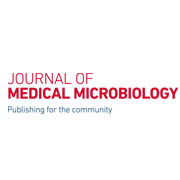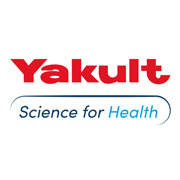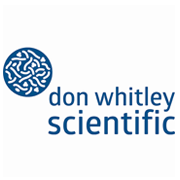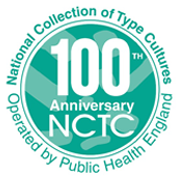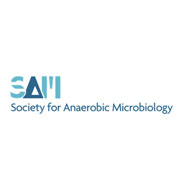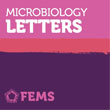The Microbiology Society is pleased to present Anaerobe 2021 in association with the Society for Anaerobic Microbiology. Anaerobic bacteria are predominant members of the normal human microbiota and well recognised as lethal pathogens. Aspects of their virulence, antimicrobial resistance and interactions with the human host will be highlighted during the Anaerobe 2021 Focused Meeting. Infectious diseases relating to Gram negative anaerobes including the Bacteroidetes, such as Bacteroides, Prevotella and Porphyromonas, will be discussed, as well as their role as drivers of diseases such as cancer and Alzheimer’s. The meeting will also include important clostridial infection and treatment updates.
Anaerobe 2021 will provide clinical microbiologists, infectious disease researchers and specialists with insights into the current and future impact of anaerobic bacteria in human health and disease. Researchers studying oral, gastrointestinal tract and female genital system microbiomes will gain key scientific insights into these important members of the microbiota and colonisers of humans.
Offered papers relating to aspects of anaerobic bacteria in human health and disease will be considered for presentation within the symposium.
Key topics
- Gram negative anaerobic bacterial infection
- Clostridial infection and treatment
- The human microbiota in health and as drivers of disease
Organising committee:
- Trefor Morris (UK Anaerobe Reference Unit, UK)
- Sheila Patrick (Queen’s University Belfast, UK)
- Harriet Hughes (UK Anaerobe Reference Unit, UK)
- Sarah Kuehne (University of Birmingham, UK)
- Garry Blakely (University of Edinburgh, UK)
Further information will be announced in the build up to the meeting on our social media channels and you can follow us on Twitter @MicrobioSoc using the hashtag #Anaerobe2021.
Image credit: iStock/DrMicrobe
Thursday 15 July, Afternoon
The Bacteroidetes in health and disease
-
Welcome
-
Hiding in plain sight: Bacteroides fragilis, a sometimes lethal pathogen from the GI tract
-
Bacteroides enterotoxin, infection and cancer
-
Offered Paper: Epitope Mapping of Human Ubiquitin and a structural homologue from Bacteroides fragilis
-
Break
-
Offered Paper: Enhancement of Tumorigenic Properties by Parvimonas micra in HT-29 Colorectal Cancer Cells
-
Alzheimer’s Disease and Periodontitis: Is Porphyromonas gingivalis a causal link?
-
Offered Paper: Implications of the unique dissimilatory sulfite reductase DsrABD in sulfide production of the gut pathobiont Bilophila wadsworthia
-
Offered Paper: Protein- and fibre-enriched diets modify the structure and function of a defined colorectal cancer patient gut community and modulate colon organoid transcriptional response
-
Speaker Q&A
-
Break
-
Chewing and swallowing – mechanisms of glycan hydrolysis and import by human gut Bacteroides
-
Lak, a megaphage that infects the gut microbiomes of humans and animals
-
Offered Paper: Characterizing prophages of the model invasive pathogen Fusobacterium nucleatum subspecies animalis 7-1
-
Break
-
Offered Paper: Use of NMR metabolomics to understand behaviour and symbiosis in the vaginal microbiome
-
Prevotella species in Reproductive Tract Infections in Women
-
Speaker Q&A
-
Break
Friday 16 July, Afternoon
Clostridioides difficile and other Clostridia
-
Welcome
-
Guess Poo: Modelling Antibiotic-mediated Dysbiosis
-
A national ISO:15189 Accredited Clostridioides difficile Whole Genome Sequencing Single Nucleotide Polymorphism Typing Service in Wales
-
Offered Paper: Ursodiol Attenuates Clostridioides difficile Infection By Altering Host Inflammatory Response
-
Break
-
Offered Paper: Age-associated defects in the adaptive immune response to Clostridioides difficile infection impair the development of a protective immune response in the elderly
-
Adaptation of C. difficile to the gut lifestyle
-
Clostridium perfringens and preterm infants: friend or foe?
-
Speaker Q&A
-
Break
Microbiota
-
Spore-forming bacteria in the human intestinal microbiota
-
Offered Paper: Cutibacterium acnes is able incorporate into biofilm communities and improve its survival in aerobic conditions.
-
Offered Paper: All five Clostridioides difficile lineages produce high levels of para-cresol in response to its precursor p-HPA
-
Break
Fusobacteria
-
Offered Paper: Fusobacterium necrophorum virulome has patchy phylogenomic relationship to their clinical source of isolation.
-
Offered Paper: RNA landscape of the emerging cancer-associated microbe Fusobacterium nucleatum
-
Fusobacterium nucleatum host-microbe interactions and responses in colorectal cancer
-
Speaker Q&A
-
Break
Thursday 15 July, Afternoon
-
Welcome
-
Hiding in plain sight: Bacteroides fragilis, a sometimes lethal pathogen from the GI tract
-
Bacteroides enterotoxin, infection and cancer
-
Offered Paper: Epitope Mapping of Human Ubiquitin and a structural homologue from Bacteroides fragilis
-
Break
-
Offered Paper: Enhancement of Tumorigenic Properties by Parvimonas micra in HT-29 Colorectal Cancer Cells
-
Alzheimer’s Disease and Periodontitis: Is Porphyromonas gingivalis a causal link?
-
Offered Paper: Implications of the unique dissimilatory sulfite reductase DsrABD in sulfide production of the gut pathobiont Bilophila wadsworthia
-
Offered Paper: Protein- and fibre-enriched diets modify the structure and function of a defined colorectal cancer patient gut community and modulate colon organoid transcriptional response
-
Speaker Q&A
-
Break
-
Chewing and swallowing – mechanisms of glycan hydrolysis and import by human gut Bacteroides
-
Lak, a megaphage that infects the gut microbiomes of humans and animals
-
Offered Paper: Characterizing prophages of the model invasive pathogen Fusobacterium nucleatum subspecies animalis 7-1
-
Break
-
Offered Paper: Use of NMR metabolomics to understand behaviour and symbiosis in the vaginal microbiome
-
Prevotella species in Reproductive Tract Infections in Women
-
Speaker Q&A
-
Break
-
Poster session A
-
Networking
Friday 16 July, Afternoon
-
Welcome
-
Guess Poo: Modelling Antibiotic-mediated Dysbiosis
-
A national ISO:15189 Accredited Clostridioides difficile Whole Genome Sequencing Single Nucleotide Polymorphism Typing Service in Wales
-
Offered Paper: Ursodiol Attenuates Clostridioides difficile Infection By Altering Host Inflammatory Response
-
Break
-
Offered Paper: Age-associated defects in the adaptive immune response to Clostridioides difficile infection impair the development of a protective immune response in the elderly
-
Adaptation of C. difficile to the gut lifestyle
-
Clostridium perfringens and preterm infants: friend or foe?
-
Speaker Q&A
-
Break
-
Spore-forming bacteria in the human intestinal microbiota
-
Offered Paper: Cutibacterium acnes is able incorporate into biofilm communities and improve its survival in aerobic conditions.
-
Offered Paper: All five Clostridioides difficile lineages produce high levels of para-cresol in response to its precursor p-HPA
-
Break
-
Offered Paper: Fusobacterium necrophorum virulome has patchy phylogenomic relationship to their clinical source of isolation.
-
Offered Paper: RNA landscape of the emerging cancer-associated microbe Fusobacterium nucleatum
-
Fusobacterium nucleatum host-microbe interactions and responses in colorectal cancer
-
Speaker Q&A
-
Break
-
Poster session B
-
Closing comments
Please find below more information about our invited speakers, who will present their work and research at Anaerobe 2021: the microbiota and beyond.
- Jo Santini (University College London, UK)
- Sharon Hillier (University of Pittsburgh, USA)
- Mike Curtis (King's College London, UK)
- David Bolam (University of Newcastle, UK)
- Susan Butler-Wu (University of Southern Carolina, USA)
- Annemarie Boleij (Radboud University, NL)
- Rob Fagan (University of Sheffield, UK)
- Daniel Slade (Virginia Tech, USA)
- Hilary Browne (The Sanger Institute, UK)
- Lindsay Hall (Quadram Institute, UK)
- Jane Freeman (Leeds Teaching Hospitals NHS Trust, UK)
- Michael Perry (UK Anaerobe Reference Unit, UK)
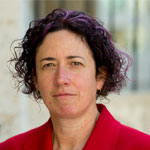
Jo Santini
Joanne M. Santini is a Professor of Microbiology at UCL and Chair of the UCL Microbiology Domain. JMS obtained her PhD in Microbiology at La Trobe University, Melbourne, Australia in 1999. In 2000 she became an independent group leader and was awarded an Australian Research Council Australian Postdoctoral fellowship. She moved to London in 2006 as a lecturer in Environmental Biology at UCL. She is interested in all microbial life having worked on bacterial plasmids and bacterial conjugation, microbial metabolism of arsenic and more recently viruses, including host-range of SARS-CoV-2, and the gut microbiome of humans and animals with a particular focus on bacteriophages. Her collaboration with Jill Banfield (UC Berkeley) led to the recent discovery of the largest phage ever identified in the gut, designated Lak, which preys on Prevotella species. Twitter: @microbiologyucl

Mike Curtis
Mike Curtis is Professor of Microbiology at King’s College London and Dean of the Faculty of Dentistry, Oral and Craniofacial Sciences. His current research is focused on the oral microbiome, the microbial pathogenesis of periodontal disease and the relationship of oral health and disease to systemic conditions. His research involves biochemical, genetic and structural studies of Porphyromonas gingivalis and the use of animal models of disease to address mechanisms of pathogenesis using both conventionally housed and germ free mice. He was a visiting postdoctoral fellow at the NIH USA before joining the Medical Research Council as Senior Scientist. He then moved to QMUL where he led the Blizard Institute of cell and molecular sciences and subsequently the Institute of Dentistry. He joined King’s in 2017.
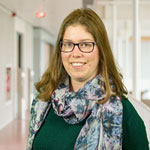
Annemarie Boleij
Dr. Boleij obtained her PhD on the association between infections with the opportunistic gut pathogen Streptococcus gallolyticus and gastrointestinal tumors. In 2012 she was awarded a Rubicon grant of NWO to conduct research on oncotoxin producing Bacteroides fragilis at Johns Hopkins Medical Institutions. Her research revealed the frequent detection of the oncotoxin in the gut mucosa of CRC patients and elucidated part of the epithelial signaling mechanism of this bacterial oncotoxin. In 2014 she started her research group at the Department of Pathology of the Radboudmc and was awarded a prestigious Veni-grant from NWO. With her research group Dr. Boleij focuses on members of the microbiome with potential cancer promoting or inhibiting effects especially in patients with a high risk for CRC. The ultimate goal is to understand whether microbes play a role in the pathogenesis of CRC and whether microbes can predict if patients are at increased risk. LinkedIn: Annemarie Boleij

Robert Fagan
Robert Fagan is a molecular microbiologist whose work for the past 16 years has focused on the anaerobic human pathogen Clostridioides difficile and related species. His lab at the University of Sheffield combines classical bacterial genetics, with protein biochemistry and structural biology by X-ray crystallography and cryo-EM. In addition to projects on the biogenesis and function of cell surface structures, sporulation and germination, the Fagan lab specialise in the development of new genetic tools and high-throughput methods for analysis of gene function.
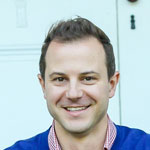
Daniel Slade
Dr Daniel J. Slade is an Assistant Professor at Virginia Tech with training in chemistry, biochemistry, microbiology, molecular genetics, enzymology, and host-pathogen interactions. The long-term goal of his laboratory is to characterize how bacteria from the oral cavity disseminate to extraoral sites to participate in infection and cancer. His work is highly interdisciplinary and is incorporating biomedical engineering to understand how Fusobacterium nucleatum contributes to multiple cancers, including its role in the modulation of cancer severity, apoptosis inhibition, metastasis, and other uncharacterized molecular mechanisms. A continuing theme of his laboratory is to develop and improve genetic systems for successful chromosomal DNA editing in Fusobacterium.
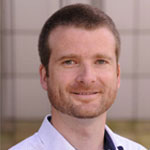
Hilary Browne
Dr Hilary Browne is a Staff Scientist in the Host-Microbiota Interactions Laboratory led by Dr Trevor Lawley at the Wellcome Sanger Institute. The foundation of Hilary’s work is based upon culturing of the strict anaerobic bacteria that comprise the majority of the human intestinal microbiota. Whole genome sequencing of the isolated bacteria facilitates genomic and metagenomic analyses, this combined with in vitro phenotypic studies leads to functional insights and a move towards establishing causation in different disease states. Hilary is particularly interested in the role of spore-forming bacteria in the human intestinal microbiota. Spores are dormant resilient structures that promote transmission of anaerobic bacteria (both harmful and beneficial) between hosts. Hilary seeks to understand the ecology and evolution of bacterial spore-formers and their functions in the human intestinal microbiota. Twitter: @hilary_browne
Lindsay Hall
Lindsay has recently been appointed as the Chair of Intestinal Microbiome at the Technical University of Munich (Germany) and is a Wellcome Investigator. She also holds a group leader position at the Quadram Institute (UK). The lab’s research focus involves defining microbe/microbiota interactions during the early life developmental window. She obtained a BSc in Microbiology from the University of Glasgow, a PhD in Microbiology and Immunology from the University of Cambridge (Wellcome Trust Sanger Institute), and was a postdoctoral fellow at University College Cork, Ireland (APC Microbiome Institute). She returned to the UK to take up a Senior Lectureship at the University of East Anglia before moving to Quadram end of 2015. Twitter: @hall_lab; Linkedin: Lindsay Hall
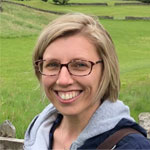
Jane Freeman
Dr Jane Freeman is a Clinical Scientist in microbiology at Leeds Teaching Hospitals Trust and an HEE/NIHR ICA Clinical Lecturer. She holds a visiting researcher position at the University of Leeds. She completed her PhD on Antibiotics and C. difficile with Prof Mark Wilcox in 2001, which was the start of a career-long interest in this organism. After a post-doctoral position in Prof. Wilcox' lab, Jane moved to the NHS to train as a clinical scientist, specialising in healthcare associated infections, and helping to establish the highly successful Healthcare Associated Infections Research group at Leeds - a multi-organisation research group bringing together academics and scientists from UoL, LTHT and PHE. Jane's particular research interests are antimicrobial resistance in C. difficile, gut dysbiosis and paediatric CDI; she is also a strong advocate of research careers and opportunities for healthcare scientists within the NHS. Twitter: @HCAILeeds

Michael Perry
Michael is a registered Clinical Scientist in microbiology, deputy lead scientist for the UK Anaerobe Reference Unit (UKARU) and a Higher Specialist Scientist Trainee, based at Public Health Wales in Cardiff. He has led on the service development and implementation of molecular and sequencer-based methods for screening, diagnosis, and typing of infectious disease. Most recently, he was the lead scientist for the development a national ISO:15189 Accredited Clostridioides difficile Whole Genome Sequencing Single Nucleotide Polymorphism Typing Service in Wales. Michael is the chair of the Wales C. difficile Infection Focus Forum, a newly formed group designed to inform further improvement in the prevention and management of CDI in Wales.
The Microbiology Society is pleased to present a book of abstracts from our presented posters at the Anaerobe 2021 Focused Meeting.
The Journal of Medical Microbiology ‘Most Promising Science Prize’ will be awarded to one offered paper at Anaerobe 2021. The prize will be awarded to a paper that presents particularly compelling or novel research in the journal’s subject field. The winner will receive a cash prize and a certificate. All offered oral papers at Anaerobe 2021 are automatically entered for the prize.
In addition to this, FEMS Microbiology Letters will be awarding a best poster prize, judged by the scientific organising committee of the meeting. The winner will receive a cash prize and a certificate.
Posters
Posters will be presented during two dedicated sessions throughout the meeting and will be viewable on the event platform from Monday 12 July. A poster abstract book will also be made available from this date.
The poster session times are below, please note all times are in BST:
Poster Session A: 15/07/2021, 19:00–20:00
Poster Session B: 16/07/2021, 17:55 –18:55
Each poster will have it's own dedicated breakout room in the sessions. Delegates will be able to navigate between the rooms to view posters within the hour slot.
Technology
Anaerobe 2021 will be accessible remotely and will use virtual event technology to provide a comprehensively curated scientific programme for the conference.
For the most stable and consistent experience, it is highly recommended that you use Google Chrome. Microsoft Edge is also compatible - depending on your browser’s security settings. Please note, the platform is not compatible with Internet Explorer, Firefox or Safari.
Event app
Anaerobe 2021: The Microbiota and Beyond will include an event app.
This will be available as a free download for all registered delegates. It has primarily been designed to help you make personal connections with other attendees (subject to your permissions).
The software also offers live event notifications, personalised schedules across the whole of Annual Conference week and options to search all abstracts.
Grants
Society Conference Grants of up to £10 are available to support eligible members wishing to present at the Annual Conference. Support is also available for members requiring support for caring costs associated with conference attendance. Full information is available on the Society Conference Grant page.
Applications to the Society Conference Grant to support registration for the Anaerobe 2021 meeting are now closed.
If you are a member who is not eligible for a Society Conference Grant, please apply via the Travel Grant scheme (deadline: 1 June 2021).
Please contact [email protected] for further queries.
Registration is now open.
Registration fees
Members get heavily subsidised registration fees for Annual Conference, Focused Meetings and other Society events – both online and in-person. Join now to enjoy these discounts and many other opportunities that are designed for microbiologists at all stages of their career.
|
Non-member |
£60 |
|
Full member |
£20 |
|
Concessionary member |
£10 |
|
Student member |
£10 |
|
Affiliate Member |
£30 |
To ensure the meeting remains of value for the scientific community, small charges apply to reflect some of the incurred costs associated to delivering the online meeting.
Registration confirmation
Upon registration, you should receive an automated confirmation email. Please contact [email protected] if after 24 hours this has not been received.
Payment information
All registration fees must be paid in full before the start of the event. Any outstanding registration fees must be paid before any joining instructions containing information on how to access the event are sent out.
Cancellations
Please inform the conferences team if you can no longer attend the event after registering by contacting [email protected]. Refunds are not provided; however, substitutions of attendees can be made at any time.
Sponsorship opportunities are available for this meeting.
Please download our sponsorship pack to view our exciting new digital options. Our options suit varying budgets and help create the opportunities you need to connect with new and existing customers. If you have any questions about the packages or the digital options available please email [email protected].

